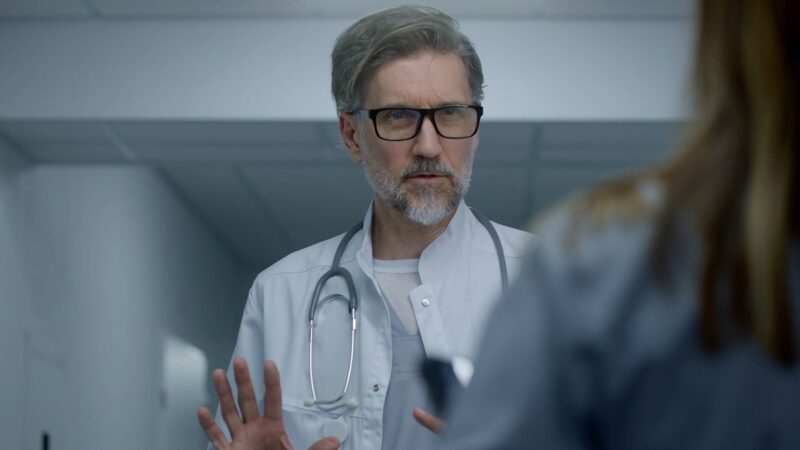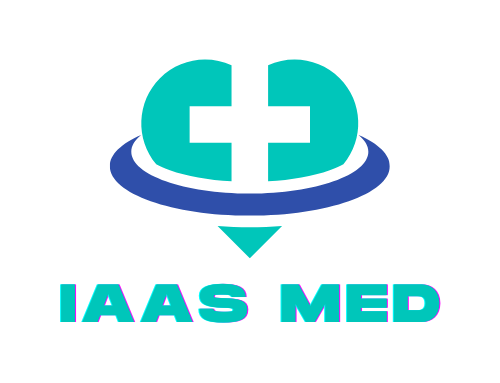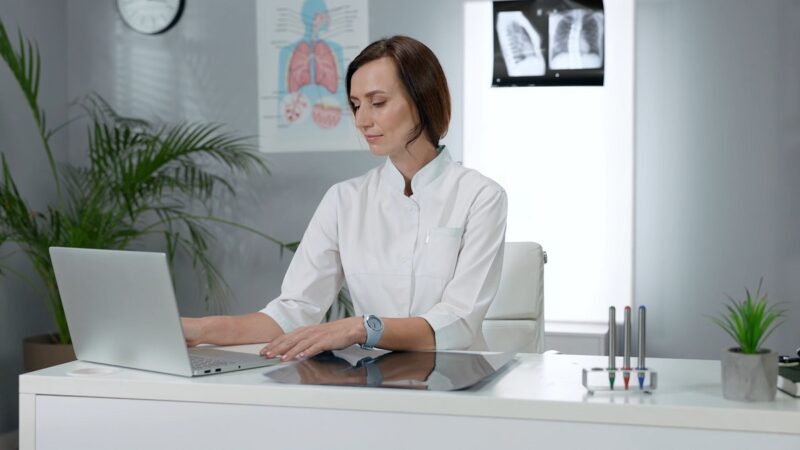The Internet has become the go-to source for health information, offering convenience and accessibility. With just a few clicks, people can search for symptoms, treatment options, and wellness tips. However, not all online health advice is accurate or safe.
Some sources provide well-researched medical information, while others spread misinformation that can lead to harmful decisions.
Distinguishing between reliable and questionable sources is essential for making informed health choices.
How to Identify Trustworthy Health Information
Sorting through online health advice requires careful attention to credibility, accuracy, and reliability.
While some sources provide well-researched medical insights, others spread misleading or outdated information.
Knowing which sources to trust can help in making informed decisions about health and wellness.
The following guidelines can assist in identifying reliable health information.
Reliable Sources

Not every website offers accurate medical advice. Certain institutions have established reputations for credibility and expertise.
The most reliable sources typically include:
- Government websites (.gov): Agencies such as the CDC, NIH, and WHO provide evidence-based medical guidelines and public health recommendations.
- Reputable medical organizations (.org): Groups like the American Cancer Society and Mayo Clinic focus on patient education and research-backed guidance.
- Universities and research institutions (.edu): Academic sources publish peer-reviewed medical findings and ongoing studies that contribute to advancements in healthcare.
- Recognized hospitals and clinics: Established medical centers, such as Penn Medicine and Cleveland Clinic, ensure their recommendations align with modern healthcare standards.
Medical websites that prioritize transparency by citing scientific studies, disclosing affiliations, and outlining editorial policies are typically more trustworthy. If a website lacks these details, it may not be a dependable source for medical information.
Credibility of the Author

Health-related content should be written or reviewed by professionals with verified qualifications. Trustworthy medical information comes from experts with relevant credentials, ensuring the accuracy of the advice provided.
- Look for professional qualifications: Authors should have titles such as M.D., Ph.D., or D.O., indicating a medical or research background.
- Check for an “authored by” or “reviewed by” section: Reputable sources include these sections to confirm that the content has been evaluated by medical experts.
Be cautious of anonymous or unverified authors: If no qualified individual is listed, the reliability of the content should be questioned.
To further verify credibility, tools like ZeroGPT can detect AI-generated content. Some health-related articles are written with minimal human oversight, increasing the risk of inaccuracies. Always confirm that a medical professional has reviewed the information before trusting it.
Up-to-Date Information
Medical knowledge evolves rapidly, making it essential to verify when an article was last updated.
Treatments, research findings, and public health recommendations change over time, and outdated advice can lead to ineffective or harmful choices.
- Look for a “last reviewed” or “last updated” date: Reliable websites regularly update their content to reflect the latest medical findings.
- Be cautious of old medical advice: If an article does not mention when it was last reviewed, the information may no longer be accurate.
- Prioritize sources that align with current research: Certain health conditions, particularly those involving emerging diseases or new treatments, require the most recent data.
Choosing sources that provide timely updates ensures that the information used for decision-making is based on the latest advancements in healthcare.
When to Question Online Health Advice
The internet has made medical information widely accessible, but not all of it is accurate or reliable. Some websites prioritize views and engagement over facts, leading to the spread of misleading or even harmful advice.
Misinformation can come in different forms, including exaggerated claims, biased reporting, and social media trends that lack scientific support.
Knowing when to question what you read online can help prevent the spread of falsehoods and protect your health.
Warning Signs of Misinformation

Certain red flags can indicate that health advice may not be trustworthy. Be cautious when encountering:
- Sensationalized claims – Any source promoting a “miracle cure,” “instant results,” or a “natural remedy doctors don’t want you to know about” should be approached with skepticism. Bold promises often signal misleading or exaggerated information.
- Unverified health experts – Bloggers, influencers, and self-proclaimed health coaches often share advice without medical credentials. Without proper expertise, their recommendations may be based on personal opinions rather than science.
- Websites that sell a product – A site that promotes a treatment while also selling a related product has an incentive to prioritize sales over accuracy. If an article feels like an advertisement rather than medical guidance, the information may be biased.
- Lack of scientific references – Credible medical content is backed by research. If a website does not cite studies, experts, or peer-reviewed sources, its claims should be questioned.
Misinformation in the News

News organizations often report on medical studies, but the way they present information can be misleading. To avoid being misinformed:
- Check for expert opinions – A reliable news article should include statements from medical professionals or researchers. If an article lacks direct quotes from experts, it may not provide a complete or accurate summary.
- Find the original study – Scientific research is typically published in peer-reviewed journals. If a study cannot be located in a well-known database, the claims in the news article might be overstated or taken out of context.
- Be cautious of oversimplified conclusions – Medical research is complex, and news outlets sometimes present findings in a way that omits important details. A single study rarely provides definitive proof of a treatment’s effectiveness.
Social Media Risks
Social media platforms are major sources of health misinformation. Viral posts can spread incorrect or misleading claims rapidly. Before trusting health advice shared online:
- Verify the source – Reliable health organizations, government agencies, and established medical institutions have verified accounts. Unverified pages or influencers without credentials should not be relied on.
- Be skeptical of viral health trends – Just because a health tip is popular does not mean it is accurate. Social media rewards engagement, not correctness.
- Look for scientific validation – If a claim has no references to medical studies or expert analysis, it is more likely to be opinion-based rather than fact-driven.
Misinformation spreads quickly online, making it important to fact-check claims before accepting them as truth. Recognizing these warning signs can help separate useful health information from misleading advice.
Best Practices for Evaluating Online Health Information
The internet provides a vast amount of health information, but not everything found online is accurate or reliable.
Some sources base their content on scientific research, while others spread misinformation. To make well-informed health decisions, it is important to evaluate the credibility of online health advice.
Cross-Checking Information

Health claims should not be taken at face value. Checking multiple reliable sources helps verify accuracy and prevent misinformation.
If a medical recommendation appears across several reputable organizations, it is more likely to be backed by research.
However, if a claim is only found on one website, there is a strong possibility that it lacks credibility.
- Look for consistency – Reliable health information is supported by multiple independent sources, including government health agencies, hospitals, and research institutions.
- Avoid single-source claims – If a medical statement exists on only one site without supporting references, approach it with caution.
- Check official databases – Trusted health databases contain peer-reviewed studies that validate medical claims.
Medical advice should always stem from scientific research rather than personal anecdotes or opinions. Taking the extra step to verify sources can help prevent reliance on false or outdated health information.
Consulting a Healthcare Professional

While online research can be a helpful starting point, it should not replace professional medical advice.
Every person’s health is different, and self-diagnosis carries significant risks.
Even if an online source seems reliable, discussing its recommendations with a doctor ensures that the information is relevant to personal health needs.
- Seek medical confirmation – A doctor can determine whether online findings apply to an individual’s condition.
- Avoid self-diagnosing – Many symptoms overlap across conditions, making self-diagnosis unreliable.
- Use online research for discussion – Bringing research to a healthcare appointment allows for an informed conversation about treatment options and medical concerns.
A medical professional’s guidance is essential for making safe and effective health decisions. Consulting a doctor helps separate factual information from misleading claims and ensures proper treatment.
Privacy and Security Considerations
Not all websites handle personal data responsibly. Some platforms may collect, store, or share sensitive health information without clear policies on data protection.
Before entering personal health details, it is important to assess the security of the website.
- Review privacy policies – Trusted sites disclose how they collect and use visitor data.
- Be cautious with personal information – Avoid websites that request excessive details such as Social Security numbers or full medical histories.
- Protect sensitive data – Use secure websites with encryption to prevent unauthorized access to personal records.
Data breaches are a significant concern, as they can expose medical records to unauthorized parties. Checking a website’s security measures before sharing health-related information can help reduce the risk of identity theft or privacy violations.
The Bottom Line
The internet provides access to valuable health information, but it must be approached with caution.
Government websites, universities, and medical organizations offer reliable content, while sources promoting products or miracle cures should be questioned.
Misinformation can spread quickly, especially on social media and in sensationalized news reports.
When researching health topics, verifying information across multiple sources and consulting a healthcare professional ensures safe and informed decision-making.
Related Posts:
- How Much Does Aflac Pay for Outpatient Surgery: Find Out!
- Top 10 Online PhD in Nursing Programs: 2024 Reviews
- How Effective Are Online Pharm.D. Programs Compared…
- How to Restore Gut Health After Antibiotics
- How Stress and Anxiety Can Lead to Gastritis - What…
- What is Ambulatory Surgery? - Everything You Need to Know















